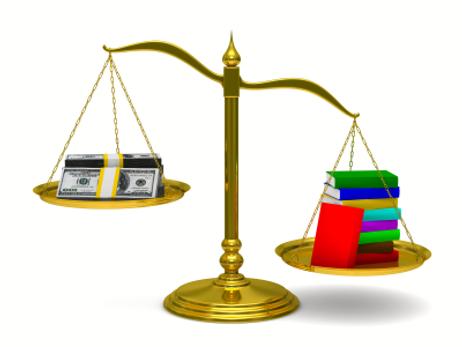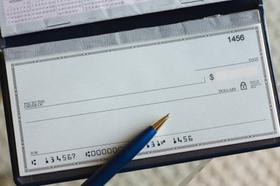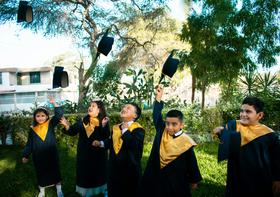An SFO is a Scholarship Funding Organization. Basically it is an organization which provides financial assistance for attendance at private school. Each SFO is a legal entity with its own rules and governing regulations.Always ask if an SFO has been set up in your state. Scholarship Funding Organizations are permitted by an act of the state legislature and allow corporations to donate tax-deductible funds for K-12 scholarships.
Arizona Independent Schools Scholarship Foundation
The Florida Tax Credit (FTC) Scholarship Program
Georgia Tax Credit for Private School Costs and Scholarship Donations
Illinois—Education Expenses Credit
Iowa—Education Tax Credits
Iowa—School Tuition Organization Tax Credit
Louisiana—Student Scholarships for Educational Excellence Program
Louisiana—Elementary and Secondary School Tuition Deduction
Maine—Town Tuitioning
Minnesota K–12 Education Credit and Subtraction Program
Ohio—Cleveland Scholarship and Tutoring Program
Ohio—Educational Choice Scholarship Pilot Program (EdChoice)
Pennsylvania—Educational Improvement Tax Credit Program
Rhode Island—Tax Credits for Contributions to Scholarship Organizations
Rhode Island Scholarship Alliance
Vermont—Town Tuitioning
Wisconsin—Milwaukee Parental Choice Program
District of Columbia—DC Opportunity Scholarship Program
his cluster delves into the financial aspects of private education, offering parents vital insights on tuition costs, financial aid, payment strategies, and long-term planning to make informed, confident decisions for their child’s future.
View the most popular articles in Funding the Future:
Scholarship Funding Organizations

What Strings Do School Vouchers Have Attached?

Opinion
Private school vouchers are available in one form or another in thirteen states and the District of Columbia. That being so, I wondered whether schools which accept vouchers are subject to state regulations over and above what they normally would be subject to. The National Conference of State Legislatures has a useful State-by-State Comparison of School Voucher Laws which allows you and me to compare the various programs.
Background
Currently thirteen states and the District of Columbia have enacted laws which provide scholarships for students meeting specific conditions so they can attend private school. These scholarships are generally referred to as vouchers. Do these private school voucher programs give parents' the choices they desire? Do private schools' give up their most cherished feature, namely, their independence? How are these programs working? What results are they achieving?
John Stoessel and others make the case for vouchers.
Most voucher programs have good intentions. They seek to give parents options in a specific set of circumstances. Sometimes the state voucher law is written to give vouchers to students with a learning disability. Other laws are written with low-income families in mind. Interestingly enough there seem to very few conditions which the private schools accepting vouchers have to meet. If the school merely accepts students without being concerned as to the source of their funding, the school apparently does not have to sacrifice any of its
Financial Aid 101

Financial Aid 101
What is financial aid?
- Financial aid is money given by individual private schools to help families pay for a private school education.
- Private schools give families millions of dollars annually to help them afford a private school education.
What is the purpose of financial aid?
- Financial aid is one tool private schools can use to make their school more diverse.
- Yes, many years ago, private schools had a less-than-positive reputation for being elitist.
- However, thankfully, times have changed.
Being able to pay for a private school education is no longer the only admission criterion that matters. If your child has the qualifications that the school is looking for, but you cannot afford to send her, then financial aid is certainly an option that you need to explore.
Read what one of the most prestigious private schools in the United States of America has to say about diversity:
"Andover's broad socio-economic diversity is a hallmark of the Academy as displayed in the inclusive distribution of financial aid grants to low-, middle- and upper-middle-income families."
Phillips Andover, like a great many private schools, has a Need-Blind Admissions policy in place. What that means is that the school does not look at your financial circumstances as part of its admissions criteria.
- Ask whether the school to which you are applying has a Need Blind Admissions policy in place.
- Find out more about how it works.
This video offers a video of the
The Parents' Financial Statement (PFS)
-4c3194pi4wis8gsg004w0g44w-462.jpg)
Most private schools offer some form of financial aid to help offset tuition. Here is how these programs work in most schools. There are exceptions, of course, because we are talking about private, independent schools. Each school determines how it will handle its financial aid program. No local, regional or national association dictates how financial aid programs will work.
First of all, you have to ask for financial aid. If you don't ask, the school will not know that you need financial assistance. Secondly, you will have to prove that you really do need financial aid by documenting your income and assets. That is where the Parents' Financial Statement comes in. Then, the last thing to consider is that most schools have a limited pool of funds from which to award financial aid. That means that you must submit your application for financial aid as early as you can in order to be considered for a financial aid award.
Here is how The Hill School, Pottstown, Pennsylvania describes its financial aid program:
"The Hill School Financial Aid Program offers assistance to families based upon their financial need and the availability of funds. There are no merit-based scholarships at The Hill School. All awards offered are based on the financial/demonstrated need of the family. Accordingly, no student should be deterred from applying to The Hill due to their family not being able to afford the full tuition. Approximately 40 percent of our current student population
How Much Do Private Schools Cost?

How Much Do Private Schools Cost?
The cost of a private school education ranges from virtually nothing at several free schools to well over $125,000 at a couple of exclusive European boarding schools.
- This doesn't include all the extras such as riding or music lessons, school trips, travel to and from the school, local transportation, health insurance, computers, and so on.
- These sundries add up quickly, so don't forget to take them into account.
- Also not included are acceptance deposits, application fees, and admissions testing.
Canva generated this picture of students in their science lab.

Here are some examples of what the various types of private schools charge.
- Remember that this is merely a sampling.
- Explore every school that interests you thoroughly as part of your school search process.
- Set aside financial concerns for the moment.
- Focus on finding the school that is the best fit for both you and your child.
- Paying for private school tuition is obviously a major concern. Most schools will offer financial aid as well as other options.
- Visit school websites in order to determine the current costs. Find that information under the admissions links.
Day Schools
Day schools are non-residential schools.
- Most of them offer classroom instruction from Monday to Friday.
- Intramural sports and activities are fitted in during the week, with many schools devoting an afternoon to non-classroom activities. Occasionally, there will be events planned for Saturdays, particularly varsity
Recent Articles









-4c3194pi4wis8gsg004w0g44w-280.jpg)











